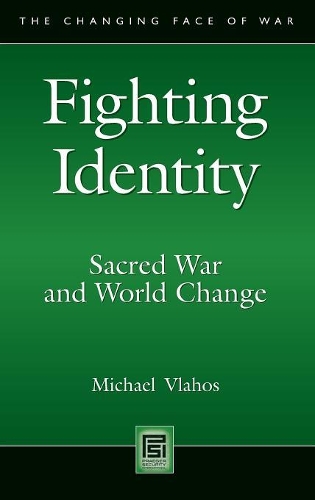
Fighting Identity: Sacred War and World Change
(Hardback)
Available Formats
Publishing Details
Fighting Identity: Sacred War and World Change
By (Author) Michael Vlahos
Bloomsbury Publishing PLC
Praeger Publishers Inc
30th December 2008
United States
Classifications
General
Non Fiction
201.7273
Physical Properties
Hardback
260
Description
This work highlights a national ethos infused by a sacred narrative of divine mission. This deep association leads to a narrow approach to conflict relationships, built around an Us vs. Them distance from the enemy, in which their submission is achieved through kinetic effects and their subsequent redemption through our good works (reconstruction). Vlahos contends that America's difficult engagement in the Muslim world demonstrates urgently that different operational approaches and tactics (like counterinsurgency) are not enough. Alternative paradigms of strategic engagement are needed, but their very consideration requires deeper cultural rethinking about how we assess world change and other cultures, and how our national ethos makes war. Why are terrorists and insurgents we fight so formidable Their strength - and our vulnerability - is in identity. Clausewitz knew that geist (spirit) was always stronger than the material: identity is power in war. But how can non-state actors face up to nation states The answer is in globalization. This is the West's 3rd globalization. Two centuries of intense mixing has torn down old ways of life and created a growing demand for new belonging. There is also a decline in US universalism. America's vision as history's anointed prophet and manager is now competing head-to-head with renewed universal visions. Like Late Antiquity and the High Middle Ages our globalization begins to subside. We may be in the later days of American modernity. We can see this worldwide, as emerging local communities within states and meta-movements find their voice - through conflict and war. Identities struggling for realization are always the most powerful. Add the diffusion of new technology and new practice, and even the poorest and seemingly most primitive group can now make war against those on high. They are successful because of a symbiotic fit between old states and new identities. Increasingly, old societies no longer find identity-celebration in war - while non-state identities embrace the struggle for realization. Hence non-state wars with America become a mythic narrative for them. Our engagement actually helps them realize identity - and we become the midwife. This book offers another path to deal with non-state challenges, one that does not further weaken us.
Reviews
What makes Vlahos essential reading is his perception, based on a profound personal and scholarly knowledge of the contemporary U.S. military as well as history ancient and modern, that while there may be technocratic strategists, there are no technocrat soldiers. * The American Conservative *
Vlahos is an innovative voice in strategic studies, with a distinguished career dating back 30 years at the US Navy, CIA, and State Department, as well as Johns Hopkins University, where he is currently senior fellow of national security analysis. In his novel, controversial, but often quite compelling attempt to unearth 'why we are losing our wars' . . . . Vlahos argues that the post-9/11 world reveals the extent to which the US nation-state has itself become a sacred identity, competing with other (in this case, Islamic) religious identities. . . . Vlahos's challenging style may feel overblown and inaccessible to some undergraduates, but the argument is worth the effort. . . . Recommended. Upper-level undergraduates and up. * Choice *
Vlahos (applied physics, Johns Hopkins U.) reflects on the conflict of the US with non-state actors by reframing war as society's central ritual of identity and the sacred, and looking at the national narrative of the US alongside the sacred histories of her enemies. His perspectives include idea, identity, method, field work, them, us, and fit. * Reference & Research Book News *
. . .original and thought-provoking. . . * Survival *
Author Bio
Michael Vlahos has spent his life thinking and writing about war and culture from service in the Navy, CIA, State, and his thirty-year tie to The Johns Hopkins University: first as Director of Security Studies at the Nitze School, and then with the Applied Physics Laboratory, where he is now a Fellow and Principal. His nine earlier books and monographs include The BLUE Sword: The United States Navy and the American Mission 1919-1941 (1980), and Terror's Mask: Insurgency Within Islam (2003).
